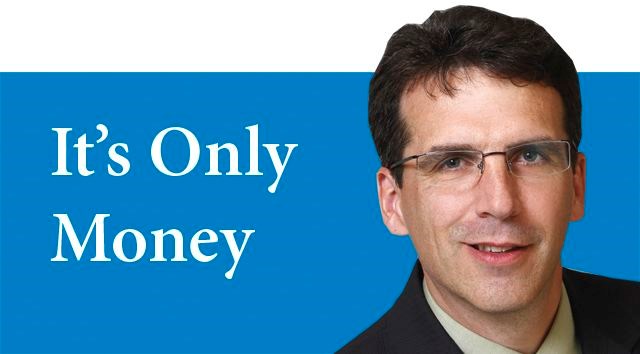It was toward the end of a long summer day and the downtown Prince George pavement was still radiating with a slightly off-smelling stifling heat.
I stopped in at an ATM of a downtown bank for what could not have been more than three minutes, figuring I could safely park in the lane near the bank. But on my return I came upon a scrawny curly-haired burglar, already halfway off his bicycle, one leg and arm in my car, rummaging frantically through my stuff.
My first reaction was that I could and would take him down. He was leaning awkwardly half in and half out of my car as I ran, shouting: "HEY!"
He was off-balance,and he knew he was busted. Adrenaline pumps faster than logic and my fight-or-flight brain throbbed with vengeance.
But as I got within reach, I saw a black handle on something poking out of his bag. If it was a gun, I figured I could get my hand on him and it before he could, but just as I was about to do so, the sense came over me that whatever he found in my ashtray or glove compartment was far less valuable than either of our lives. I stutter-stepped, feigning being out of reach, and allowed him to get away.
I stood there for a moment, panting, briefly thoughtful about having avoided nonsense.
I got in to my car, my still heart pounding, and saw him glance backward as he scurried down the lane toward some unknown downtown hideaway, and something about his face stirred some inner caveman in me all over again.
I jumped in the car and revved the engine, Steve McQueening down the alley toward the Ramada where I saw him last. I caught a glimpse of his jacket as he sped around a corner about 50 metres ahead of me and figured I had him. But by the time I got to where he was just seconds before, he had vanished in to some downtown hole. I drove around the block a couple of times, ducking in and out of a few alleyways, but the tension was leaking out of me. In not too long, the sober risk manager nudged his way forward to my prefrontal cortex, overtaking the inner Igor which had momentarily resided there.
I drove home, still vibrating, but richer than I would have been in conflict.
And so it is with taxes - fight to reduce your tax bill but do it methodically, using something less than full lethal force. Make it a study, not a wild swing. Here in our last of this annual tax series, we wrap up a few more tax-reduction strategies that won't get you on the wrong side of the law.
Year-end expenses
Generally, you can deduct certain expenses you paid in the year on your personal income tax return. Therefore, remember to pay all investment management fees, tuition fees, deductible accounting and legal fees, childcare expenses, alimony, medical expenses and any business expenses (if deductible on your personal tax return) by December 31st if it is your intention to deduct them on your 2017 tax return.
Tax planning for
business owners:
Individual Pension Plan (IPP)
If your business is incorporated, as a shareholder and an employee of your business, you have the option of considering an IPP as a method of saving for retirement. An IPP is a defined benefit registered pension plan, similar to many large company sponsored plans, except it is established and sponsored by your company and designed for you as the only member. Its explanation could take up a few pages more than most would care to read.
Suffice to call it a sort of supercharged RRSP/Pension for small business owners.
Pay salaries before year-end
If you operate your own business, consider paying reasonable salaries to yourself and family members who work in the business, before year-end. This year-end payment constitutes earned income which increases RRSP contribution room for the following year, and gives your business a tax deduction in the current year. The salary paid must be reasonable based on the services performed by your family member. A good rule of thumb is to pay your family member what you would pay someone who isn't related to you.
Declare bonuses before year-end
If your business is incorporated, consider declaring a bonus before the corporate year-end and defer the actual pay as much as 180 days after year-end. Assuming your corporation's year-end is December 31st, if your corporation declares a bonus on December 31st, 2017, it will get a tax deduction for 2017 and the tax you will have to pay on the bonus will be deferred.
Shareholder loans
If your business is incorporated and the corporation loaned you money, ensure that the loan is repaid before the end of the corporation's tax year after the year the loan was granted to avoid having to include the value of the loan as income on your personal tax return.
Purchase assets for your business
If you intend to purchase assets for your business, consider buying just before yearend. If the asset is available for use, this year-end purchase will allow your business to claim one-half of a full year's depreciation on the asset for tax purposes.
Mark Ryan is an investment advisor with RBC Dominion Securities Inc. (Member - Canadian Investor Protection Fund), and these are Ryan's views, and not those of RBC Dominion Securities. This article is for information purposes only. Please consult with a professional advisor before taking any action based on information in this article. Ryan can be reached at mark.ryan@rbc.com.



